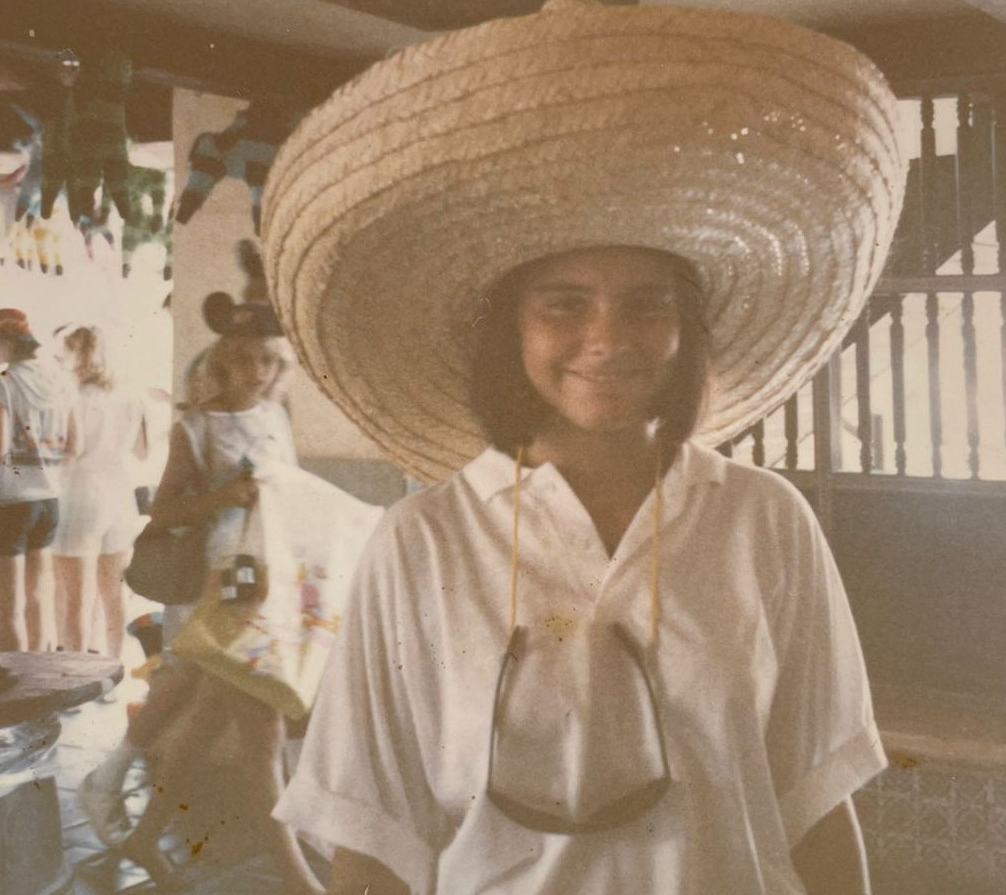This blog contains mentions of food to help illustrate specific experiences of the author. Some individuals experiencing eating disorders may have a hard time reading this. Please check in with yourself before reading this and if you need support, you may find these resources helpful.
My mother often referred to herself as “chubby and happy” on her wedding day. She easily fit into my father’s jeans, yet never struggled with body image. My mother has always been stunning – when I look at old photographs taken in Guayaquil, her beauty radiates. It wasn’t long after she moved to New York that she began to shrink in size. Alfajores and patacones were replaced by “healthier” American foods, her weight diligently documented after hours spent at the gym. She judged herself for eating too much, calling herself a “chancha” for indulging in pan de yuca during trips back home. The more I learn about my mother’s eating disorder, the more I wonder how much its emergence had to do with assimilation.

As a child, I had a healthy appetite. I happily slurped helado on the beaches of Salinas, enjoyed pollo apanado con arroz y puré de papa for lunch, chased with a glass of jugo de naranjilla. It wasn’t until I was living in England that I learned my favorite meal was disturbingly gluttonous. How could anyone possibly eat rice with mashed potatoes? Noses would wrinkle at the thought of consuming “a double starch”. I became ashamed of my inability to eat one without the other, and quickly claimed distaste for potatoes in any form.
Children will do anything to belong. I already had darker skin than my peers, a seemingly unpronounceable name, and a mother who was often mistaken for my nanny, her accent confusing parents when she opened the door of our house, a house that couldn’t possibly belong to a woman who spoke with her accent. It seemed to add insult to injury when my body refused to conform, expanding in all sorts of unwieldy ways once I reached adolescence.
My puberty felt abnormal. I quickly developed breasts, forced to wear a bra by age nine, teased mercilessly in the locker room as we got changed for gym class. I was soft where my classmates were firm, curvy where they were angular. The school nurse chastised me for my soaring weight, showing me how much my chart stood out compared to everyone else’s. Boys weren’t interested in me, my first kiss performed as a favor, and it appeared that my body was the problem. So I committed myself to whittling myself into a shape no one from high school would recognize, becoming less identifiably Latina in the process. My internalized racism, how much of a role has it played in my eating disorder? I’m thirty years old, yet I often get mistaken for a child, my body closer to the seventh-grade standard that taunted me in high school, a standard I partly destroyed myself to attain.
The more time passes, the more I want to look like my mother. Not the young woman in Manhattan, looking lethargic and miserable as she hid from the camera. I want to resemble the happy girl in Ecuador, the one who exudes warmth and kindness and satisfaction, the one my father couldn’t help but fall in love with. I want to one day serve my daughter arroz con puré de papa and sit down to eat the dish together, free of shame, secure in the knowledge that it is precisely what makes me other that is to be most cherished.
Domenica Feraud is a first-generation Ecuadorian writer and actor from New York City. Her play RINSE, REPEAT premiered at the Signature Theatre in 2019 and was a New York Times Critic’s Pick. RINSE, REPEAT sharply conveys the painful truth about a woman’s fight for her life in the face of an eating disorder, and explores the role her family plays in that fight. The play was published in 2021 and has been performed as far as Singapore, bringing more awareness to an illness society seems determined to continue ignoring. After the viral success of her essay, The Movie Star and Me, she is currently working on a collection unpacking the role that popular culture plays in our conditioning.






